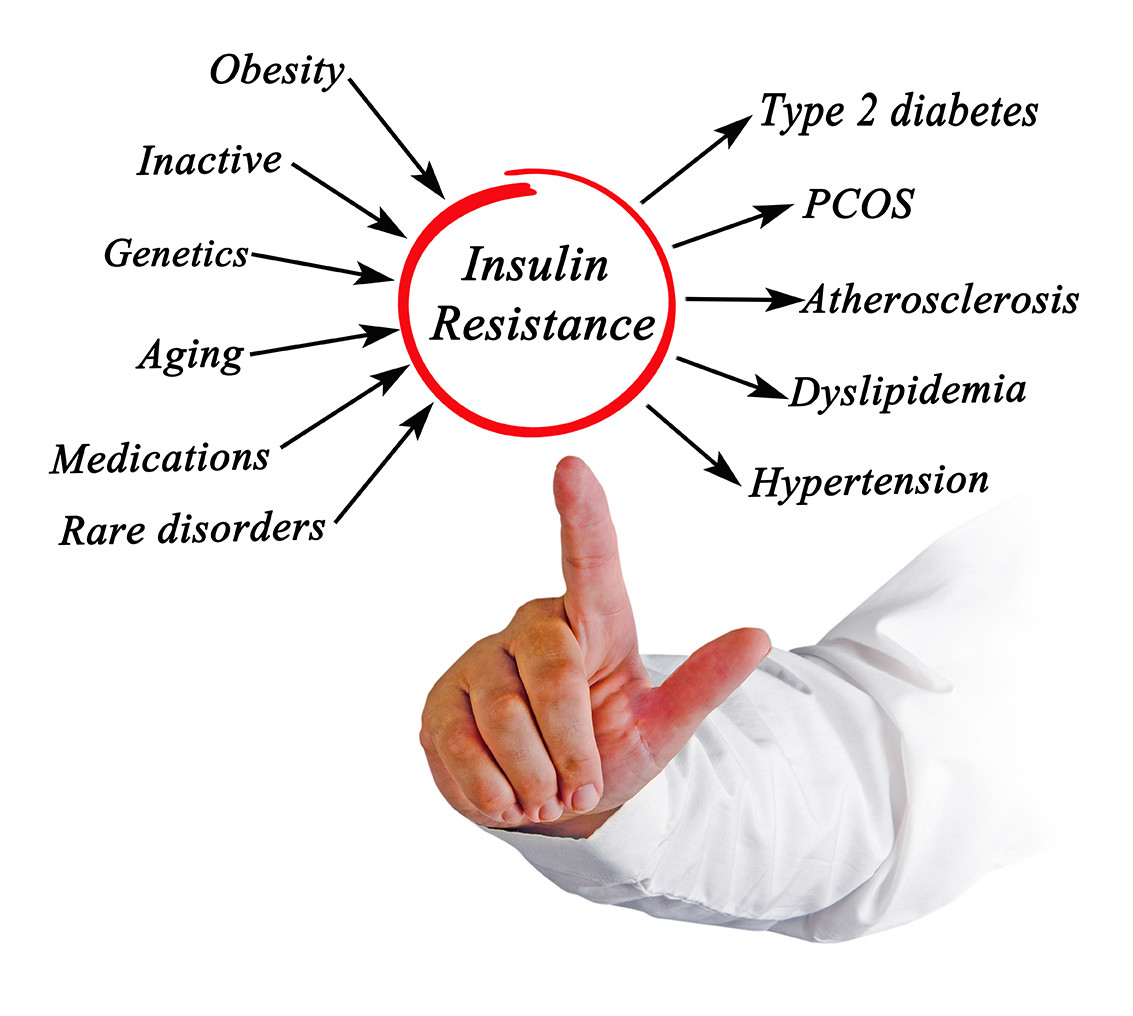What is Insulin Resistance:It is a pathological condition in which the cells of the body have a diminished ability to respond to the actions of insulin. This condition leads to high blood sugars and eventually type 2 diabetes. |
See below for causes, and treatment.
What if you get a call from your stockbroker in the middle of a vacation with your family that your investments are about to tank? Wouldn’t it be great if there were a chance to salvage by taking corrective measures?
Some things in life have the capacity to upset your applecart beyond repair. Diabetes is one such condition that can impose itself upon you and alter the way you lead your life forever. However, for some people, there is chance to make amends.
For those of you who do not get periodical medical checkups because you think you are healthy, you might be on the path to become a diabetic. Yes. We say this not to create paranoia, but to show that there might be a way out.
India is the diabetes capital of the world and even as you read this blog, you are using a mobile device and adding more time to your sedentary life. It is a fact that the Indian corporate workforce spends more time being seated or reclined than in ambulation. And, it shall not take a wild guess to say that some of you are on the path to become diabetics.
What happens to the body with Insulin Resistance?
It all starts without your knowledge in the form of insulin resistance! After the food is digested, glucose is transported to every cell of the body through the bloodstream. In patients with insulin resistance, the cells of the muscles and the tissues fail to use the glucose.
When insulin receptors of the muscle and fat cells do not respond to the insulin, the body goes into a mechanism leading to production of excess insulin. Over time, when the pancreas cannot produce enough insulin, there is a surge in the blood glucose levels. The culmination of insulin resistance and its mechanism is the increased presence of diabetes type 2 symptoms.
Who is at risk of Insulin Resistance?
- People who are obese and have excess visceral fat.
- People who have high blood pressure.
- Patients with elevated cholesterol levels.
- Cushing syndrome patients.
- Fatty liver patients.
- PCOS patients.
Causes of Insulin Resistance
- Obesity (higher body mass index).
- A diet with high calories, carbohydrates, and sugar.
- Sedentary lifestyle.
- Chronic stress.
- Smoking.
- Sleep disturbances.
The symptoms of insulin resistance is akin to type 2 diabetes symptoms and often present in the form of:
- Tiredness, lethargy, and fatigue.
- Excessive hunger.
- Inability to concentrate.
- Tingling sensation in the feet.
- Acanthosis Nigricans (dark patches on the skin).
Treatment for Insulin Resistance
When it comes to the management of insulin resistance, there is more for the patient to do. It is very important to have both behavioral and lifestyle modifications in order to manage insulin resistance and avoid type 2 diabetes.
- Opting for low glycemic foods, high fiber diet, and non-starchy vegetables is important.
- There should be an increase in the intake of vegetables, fruits, lean meats, and whole grains.
- Increase in the levels of physical activity assists in weight reduction which is paramount.
Insulin resistance is certainly an alarm bell. Though you feel healthy and do not experience any type 2 diabetes symptoms, it is vital that you get periodical health checkups if you are above 35 years of age.











